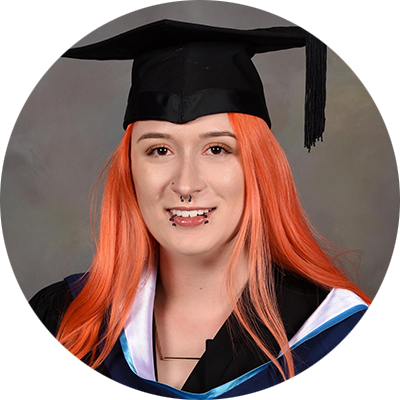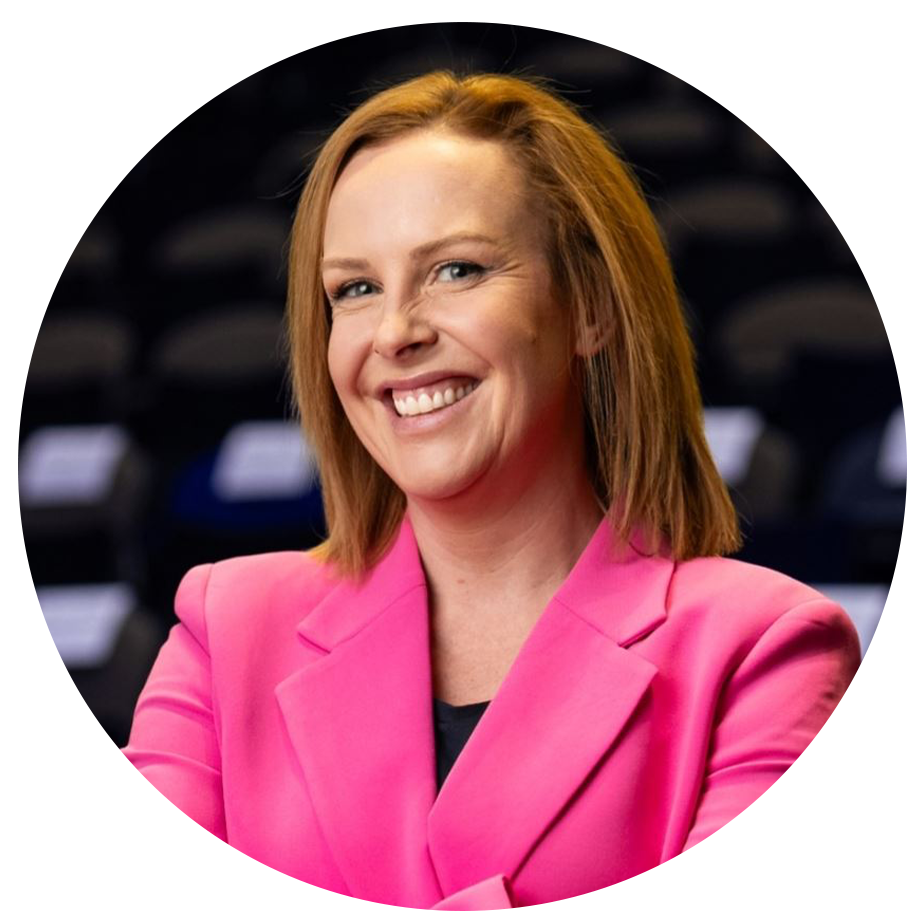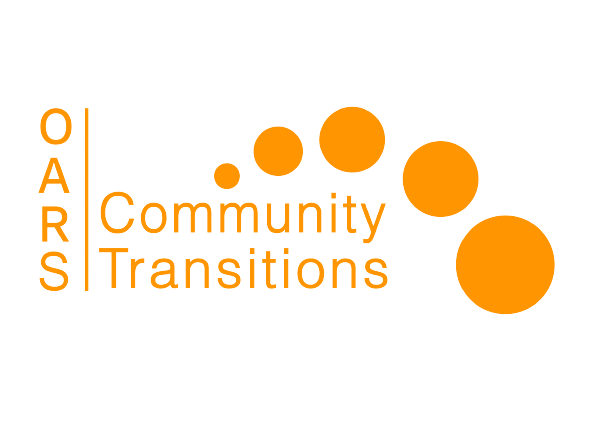Entry requirements
Key information
overall
overall
Note: Part-time equivalent study options are not available for international students.
True Crime. Real Impact.
Imagine turning your passion for true crime into a meaningful career. With a criminology degree, developed in collaboration with industry and delivered by the largest and most experienced criminology team in SA you can explore the depths of criminal behaviour, understand the societal impacts of crime, and work towards solutions that promote justice and safety. Be part of the change you want to see in your community and the world.
Our Bachelor of Criminology equips you with the skills to make a real difference, whether it's through crime prevention, rehabilitation, or working within the criminal justice system. Be part of the change you want to see in the world.
Ranked in the top 2%
of the universities in the world
The World University Rankings 2024 as a percentage of the total number of universities in the world according to the International Association of Universities
No.1 in SA
in learner engagement, skills development, student support and starting salary
The Good Universities Guide 2024 (undergraduate)
Five stars
for learner engagement, learning resources and skills development
The Good Universities Guide 2024 (undergraduate)
Criminology jobs are projected to grow by 25% to 2026.
Becoming a Criminologist offers a range of different career options. You may specialise in crime prevention, responding to cybercrime, terrorism, youth justice and law enforcement, or you may work in victim support services or offender rehabilitation and reintegration.
Salary
$135K
typical salary in Australia
Job opportunities
1,568
in Australia, 2025
Intelligence Manager
Lead the development and implementation of intelligence strategies, manage teams of analysts, and provide expert guidance on intelligence gathering and analysis. This role is critical for supporting decision-making, identifying threats and risks, and ensuring organisational security.
Cyber Security Analyst
Implement security measures to protect organisations and their information systems from breaches. This could include installing software that protects data, testing systems for vulnerabilities and educating staff on the best ways to prevent cyber threats.
Jobs growth
58.9%
5-year projection
Salary
$110K
typical salary in Australia
Sources: Jobs and Skills Australia 2025, Employment Projections & Seek Australia, 2025
Community Corrections Officer
Work with people under community supervision, providing case management, support, and advice to help them reintegrate into society and comply with court orders.
Study: Major in Criminal Justice
Policy Analyst
Focus on analysing, developing, and implementing policies to achieve specific goals within an organization or government. Research, analyse data, and provide recommendations to inform policy decisions.
Study: Major in Strategy and Analysis
Case Manager
Provide information, advice, and support to victims of crime, including domestic violence services in a victim support agency, government or not-for-profit role.
Study: Major in Social Justice
Correctional Services Clinician
Work within the correctional system to support people in their rehabilitation and reintegration into society. Undertake risk assessments, provide therapeutic interventions, assess risks and needs, and have an impact.
Study: Major in Criminal Justice or Social Justice
What will you study to start your career in criminology?
In your first year, you’ll study why crime occurs and its impacts on the community, as well as explore how the criminal justice system works, the operation of criminal law in practice, and build key research and communications skills. After your first year, you can choose to ‘major’ (specialise) in an area that aligns with your interests and career goals.
- Year 1
- Year 2
- Year 3
GENERAL
In your first year, you'll study core topics and your choice of three option topics. After your first year, you can focus on an area that interests you by selecting from a range of majors and minors, with the flexibility to combine them in a way that works best for you.
Year 1 - Core topics
Your first year might include the following topics. For exact topic information, visit the course Handbook.
GENERAL
In the second year, you can choose to begin a major or minors, such as Criminal Justice, Cybersecurity and Cybercrime, Social Justice and Strategy and Analysis.
Year 2 - Core topics
Your second year might include the following topics. For exact topic information, visit the course Handbook.
- Protecting the Safety of the Community: Sentencing and Corrections
- Policing for the Future
- Understanding Victims and Trauma
GENERAL
In your third year, you'll deepen your expertise in your chosen area of interest, gaining advanced knowledge and skills through hands-on projects, work experience, and industry collaborations.
Year 3 - Core topics
Your third year might include the following topics. For exact topic information, visit the course Handbook.
- Analysing Cybercrime and Digital Risk
- Children, Young People and the Justice System
- Trauma-informed Practice in Criminal Justice
- Building Criminology Careers: Industry Project
- Criminology Industry Placement
Customise your degree.
After your first year, you can focus on an area that interests you by choosing majors and minors, with the flexibility to combine them in a way that works best for you. This will help you work toward the career of your dreams.
MAJOR
Criminal Justice
SATAC: 245711 (Bedford Park) 285261 (City)
This major equips you with the diverse knowledge and practical skills needed for a successful career in the criminal justice system and related fields. You will gain an understanding of the complex forces shaping crime, criminalisation and society’s response, and gain skills in understanding cybercrime, victims and trauma and the social impacts of punishment.
Year 2 - Core topics
Criminological Research Methods
Victims and Trauma
Social Impacts of Punishment
Policing for the Future: Innovations and Social Impacts
*Topics may be subject to change.
Year 3 - Core topics
Cybercrime and Digital Risk
Children, Young People and the Justice System
Trauma-informed Practice
Industry Project
*Topics may be subject to change.
MAJOR
Cybersecurity and Cybercrime
SATAC: 245421 (Bedford Park) 285271 (City)
Through an in-depth exploration of cyber threats, defence mechanisms, and illegal activities, this major prepares you to tackle real-world challenges and contribute meaningfully to the protection of computer systems and to protect those networks and data from attacks.
Year 2 - Core topics
Social Impacts of Punishment
Policing for the Future: Networking
Fundamentals
Digital Forensics
*Topics may be subject to change.
Year 3 - Core topics
Information Security
Analysing Cybercrime and Digital Risk
Industry Project
One option topic
*Topics may be subject to change.
MAJOR
Strategy and Analysis
SATAC: 245431 (Bedford Park) 285101 (City)
This major prepares you to tackle real-world challenges and contribute meaningfully to the promotion of social justice through an in-depth exploration of social inequalities, human rights, and advocacy strategies for impactful careers as researchers, intelligence analysts, policy officers and related roles.
Year 2 - Core topics
Social Impact of Punishment
Policing for the Future: Australian Public Policy
Criminology Research Methods and Data
*Topics may be subject to change.
Year 3 - Core topics
Cybercrime and Digital Risk
Resilience and Professional Skills
Strategic Communication and Public Relations
One option topic
*Topics may be subject to change.
MAJOR
Social Justice
SATAC: 245721 (Bedford Park) 285281 (City)
This major prepares you to tackle real-world challenges and contribute meaningfully to the promotion of social justice through an in-depth exploration of social inequalities, human rights, and advocacy strategies. Learn to identify and address systemic barriers and biases within the criminal legal and social welfare systems and apply trauma-informed principles of practice to ensure everyone can thrive.
Year 2 - Core topics
Social Impacts of Punishment
Policing for the Future: Groups and Communities
Social Work
*Topics may be subject to change.
Year 3 - Core topics
Cybercrime and Digital Risk
Children, Young People and the Justice
System
Building Community Capacity
One option topic
*Topics may be subject to change.
MINOR
Criminal Justice
This minor offers a foundational understanding of criminology, providing you with essential knowledge and practical skills for a career in the criminal justice system. You will explore the dynamics of crime, criminal behaviour, and societal responses.
Year 2 - Core topics
Criminological Research Methods
Victims and Trauma
*Topics may be subject to change.
Year 3 - Core topics
Criminology Careers: Industry Project
One option topic
*Topics may be subject to change.
Option topics
Your choice of any one topic (4.5 units) university-wide, given entry requirements are met or a bachelor of criminology minor
MINOR
Cybersecurity and Cybercrime
Explore the intricacies of cyber threats and security measures with this minor. You will learn about the technological frameworks that protect against cybercrime and learn the foundations of cybersecurity to protect computer networks and data from attacks.
Year 2 - Core topics
Networking Fundamentals
Digital Forensics
*Topics may be subject to change.
Year 3 - Core topics
Information Security
One option topic
*Topics may be subject to change.
Option topics
Your choice of any one topic (4.5 units) university-wide, given entry requirements are met or a bachelor of criminology minor
MINOR
Social Justice
This minor focuses on the principles of social justice, examining social inequalities, human rights, and advocacy strategies. You will learn how to address and promote equity and justice in various social contexts using trauma informed practice.
Year 2 - Core topics
Groups and Communities
Social Work
*Topics may be subject to change.
Year 3 - Core topics
Community Capacity
Victims and Trauma
*Topics may be subject to change.
MINOR
Strategy Analysis
This minor focuses on the critical analysis of social justice challenges. Developed in partnerships with industry, you will study advocacy techniques and strategic approaches to address and mitigate social inequalities, empowering you to contribute to societal transformation.
Year 2 - Core topics
Australian Public Policy
Resilience and Professional Skills
*Topics may be subject to change.
Year 3 - Core topics
Strategic Communication and Public Relations
One option topic
*Topics may be subject to change.
Option topics
Your choice of any one topic (4.5 units) university-wide, given entry requirements are met or a bachelor of criminology minor
Years 2–3
After your first year, you can focus on an area that interests you by choosing a major, a major and two minors or a minor and option topics. This will help you work towards the career of your dreams.
OR
OR
Accreditation or Professional Recognition
You will be eligible to apply for membership with the Australian and New Zealand Society of Criminology.
Boost your knowledge with an Honours in Criminology.
SATAC: 234941 (Bedford Park) 284251 (City)
Gain a competitive edge with a Criminology Honours degree at Flinders. Explore a topic you're passionate about, complete a research thesis, and dive into criminological theory and practice.
Choose the four-year Honours track or add it as a one-year option at the end of your degree. You'll develop advanced research, project management, and critical thinking skills, enhance your professional and interpersonal competencies, while connecting with industry experts through placements and co-designed research on real-world 'wicked' problems.
No.1 in SA
for learner engagement, skills development, student support and starting salary.
The Good Universities Guide 2024 (undergraduate)
Ranked in the top 2%
of the universities in the world
The World University Rankings 2023 as a percentage of the total number of universities in the world according to the International Association of Universities
Five stars
for learner engagement, learning resources and skills development
The Good Universities Guide 2024 (undergraduate)
Discover South Australia.
Where world-class education meets laid-back coastal living. With pristine beaches, acclaimed wineries, and vibrant festivals at your doorstep, South Australia offers an unmatched student experience.
Photo credit: SATC
Gain two qualifications in 1 year of extra study with a combined degree.
Flinders University combined degree options can help you pursue multiple passions and graduate with two degrees to broaden your career opportunities.
Add on Psychological Science
Combined SATAC code: 284801
Duration: 4 years
Delivery Mode: In person
By combining studies in psychology and criminology, you will develop the professional skills to work in justice and human services fields. This degree can be used as a first step to becoming a psychologist. To become a psychologist, you also need to complete further study at honours and masters levels.
Add on Law
Combined SATAC code: 244951 (Bedford Park) 284571 (City)
Duration: 5 years
Delivery Mode: In person
Add on Information Technology (Network and Cybersecurity Systems)
Combined SATAC code: 234661 (Bedford Park/Tonsley)
Duration: 4 years
Delivery Mode: In person
By combining studies in IT and criminology, you will develop the professional skills to work in cybersecurity, network systems, cybercrime and much more. Want to become a Chief Security Officer? This degree is for you.
Get inspired.
Discover more about Flinders' Bachelor of Criminology

Ever wondered about a career in criminology? Let's unveil the mystery.
Criminology. What is it? And where can it take you? Chayse provides insights into the field, dispelling myths and shedding light on the myriad opportunities that arise with a Criminology degree.
Learn about Criminology with graduate James Dean
"I would recommend a criminology degree because as long as there's socio economic disadvantage, there's always going to be crime." Hear graduate James Dean discuss his studies in criminology and psychological science, and his experience on the graduate program with the Department for Correctional Services.
Learn about criminology with graduate Sabrina Uhlmann
"Flinders' Criminology has an outstanding team of educators who truly go above and beyond. Throughout my undergraduate studies, I was offered incredible opportunities, experiences that, had I turned down, I know I wouldn’t be where I am in my career today." Hear graduate Sabrina Uhlmann discuss her experience at Flinders University.
A Career in Criminology
Study our Bachelor of Criminology, developed in collaboration with industry and delivered by the largest and most experienced criminology team in South Australia. This degree equips you with the skills to examine criminal behaviour, understand what drives it, and learn to make a real impact on society.
“Flinders opened my eyes to under-researched issues like modern slavery, inspiring me to pursue a career in criminology research.”

Eva Coussens
Bachelor of Criminology
“The opportunities are endless with a criminology degree!”

Dulcie Bird
Bachelor of Criminology
“Flinders gave me the confidence to take the first steps in my career in criminology.”

James Dean
Bachelor of Criminology
“Flinders opened my eyes to under-researched issues like modern slavery, inspiring me to pursue a career in criminology research.”

Eva Coussens
Bachelor of Criminology
“I have had so much support... Studying as an international student may not be easy, but it is a beautiful journey that I’m grateful to experience.”

Abigail Jyothika
Bachelor of Criminology
“Flinders gave me the confidence to take the first steps in my career in criminology.”

James Dean
Bachelor of Criminology
Need support?
International Student Services (ISS) is the first point of contact for international student support. The university also offers everything from cultural, health, and wellbeing services, to academic support.
Campus tours
Take a virtual tour of our campuses, guided by your fellow international students.
FUSA
Flinders University Student Association (FUSA) is the heart of the Flinders Experience. FUSA is where you'll find out about events, club memberships, and extracurricular activities.
Accommodation.
Adelaide has many accommodation options for international students. You can choose to live on campus, at our city accommodation provider The Switch, or in rental accommodation.
Flinders offers a vibrant, fun, supportive uni experience you’ll remember for a lifetime.
Need support?
From cultural, health and wellbeing services, to study and financial support, enrolment advice and more, we’re here to help.
Student clubs
Flinders University Student Association (FUSA) is the heart of the Flinders Experience. FUSA is where you’ll find out about events, club memberships and extracurricular activities.
Campus facilities
Flinders’ campuses are hubs of activity, with retail and food outlets, library spaces, study and chill spaces and more.
Learn from the experts.
Our incredible teaching and research staff are experts in their fields and are well-connected to industry and their communities.

Dr Katherine McLachlan
Katherine previously worked with South Australia Police, Child Protection and Youth Justice, in the Attorney-General's Department and for Victim Support Service and the Australian Institute of Criminology. She draws on this extensive criminal justice experience to enrich student learning with real-world insight. An award-winning educator and author, she specialises in trauma-informed practice, victimology, and violence prevention, supporting students to critically engage with justice systems and build meaningful, informed careers.

Dr Andrew Groves
Andrew brings expertise in alcohol and drug use, youth justice, and rural criminology to his teaching. With real-world experience and a passion for social justice, he empowers students to explore critical issues and build skills for meaningful impact in criminal justice. Andrew also has experience working in the criminal justice system, and has completed research evaluations for various organisations, including The Salvation Army, Victim Support Service (SA), and the National Centre for Education and Training on Addiction.

Rachel Lever
Rachel is a passionate and dedicated professional with a diverse background in human services, law, and education. Rachel has 18 years’ experience as a police officer, with 8 years as a first responder, before specialising as an in-court prosecutor in the Family and Domestic Violence Sector. Rachel’s most recent practice-based experience has been as a Senior Social Worker with the Department for Child Protection, investigating early intervention and preventative strategies.
Connect with industry.
In this course you'll benefit from strong partnerships with government agencies, public and private organisations across the criminal justice sector. These industry connections ensure your learning is grounded in real-world practice, helping you graduate confident, capable, and career-ready.



Gain real world experience.
In third year, you'll have the chance to step into the real world of criminology through industry placements, letting you apply what you've learned in class, gain hands-on experience, build professional networks, and develop skills employers are looking for.
"Favourite part of criminology would have to be the placement, I improved my communications skills, built networks and met a diverse range of people." Tamiah Hogan, Bachelor of Criminology graduate
Let’s get started on your Flinders’ experience.
We know not everyone begins uni the same way, so we offer a variety of pathways into Flinders.
Use the dropdown to tell us a bit about you.
Alternative pathways
UniTEST
If you’re in Year 12, taking the free uniTEST can help boost your chances of getting into Flinders.
Research Project B Pathway
Strong results in your Research Project B subject along with your Year 12 results can be considered for entry.
Year 12 Grades Entry
By using three of your best Year 12 grades, you can also gain a place in your course of choice.
School Recommendation Program
Your school’s recommendation about your academic performance may be considered as part of your admission.
If you started uni but didn't finish, you may be able to gain entry into Flinders with a higher education transfer.
Higher education transfer
If you’re studying at another university, you may be able to transfer to Flinders based on your Yr 12 results, current GPA or other factors.
If you've had TAFE or VET training, you may be able to continue your study with Flinders.
TAFElink
Even if you didn’t finish high school (Year 12), you may be able to study at Flinders through your TAFE/VET qualification.
Dual offer pathways
You may be able to complete a TAFE SA course and have guaranteed entry into Flinders.
Credit transfer
The TAFE/VET stud you’ve already done may be able to be used as credit towards a Flinders’ course.
No ATAR? No worries. If you've got work or life experience, there are pathways into Flinders.
Flinders Foundation Studies
The Foundation Studies Program is free and guarantees entry to a range of degrees.
Skills for Tertiary Admissions Test (STAT)
The STAT is a 2-hour multiple choice test that assesses your abilities.
Year 12 qualifications
If you completed Year 12 more than two years ago you can still use your results to apply.
Concerned about your ATAR? If it doesn't meet the course requirement, or if you don't receive one, we offer alternative pathways to admission. Contact us to discuss your options—we're here to help.
- Entry requirements
- Application options
If you don’t meet our English language entry requirements and need to improve your English language proficiency, you can do so through Flinders University Academy – or our approved English Language Instruction Course for Overseas Students (ELICOS) providers.
This means that you can attend the required English language tuition at approved ELICOS providers and gain direct entry into university without an IELTS or TOEFL test.
If you don’t meet our academic entry requirements, you can still gain entry to Flinders University through Flinders University Academy. With a range of diplomas, foundation and English language courses, students can find a direct pathway into the destination degree of their choice.
How to apply
Select your course.
Check entry requirements.
Check your eligibility for credit.
Obtain certified documents.
Submit your application and documents.
Application options.
Apply online
Follow up our step-by-step guide to help you with your application to study at Flinders.
Find an agent
Our registered education agents around the world understand the university system and will guide you through the application process.
Contact us
Get in touch with our team to discuss your preferences, career options, pathways, and course and entry requirements. We are here to ensure you have everything you need to choose the right degree for you.
Don't meet academic requirements? Don't worry. We'll help you get there.
Preparatory courses
If you lack required English proficiency, improve through Flinders University Academy or approved ELICOS providers for direct university entry without IELTS/TOEFL tests.
Flinders University Academy
If you do not meet entry requirements for your desired degree, Flinders University Academy will provide you with a direct pathway into the destination degree of your choice.
Frequently asked questions.
Over the years, many questions have been asked by students before. For the quickest answers view our frequently asked questions or browse the full list @ Ask Flinders.
A career in criminology is rewarding and fulfilling, with broad-ranging opportunities to specialise in an area of your interest or you could combine your passion with psychology, law, international relations, IT (Network and Cybersecurity Systems) or forensic science.
Criminology jobs and careers are wide ranging. Criminologists can work in the criminal justice sector or in intelligence, with clients while others can work in the legal field, ensuring law keeps up with changes in society, or in government policy, or in a private institution such as a bank or insurance company. According to Jobs and Skills Australia, intelligence analysts will see strong growth (25% growth over the next 10 years) and the World Economic Forum Future of Jobs Report indicates that Information Security Analysts are in the top in-demand jobs.
Criminology Flinders offers a range of criminology courses and you can study a one-year diploma in criminology, a standalone degree in criminology or combine it with psychology, law, international relations or forensic science.
The academic staff members have an internationally-renowned reputation for research, specialising in areas like policing, corrections, criminal justice, youth sentencing and more. You can find out about different areas of research in criminology by searching the Flinders University website or with an Australian Government agency like the Australian Institute of Criminology.
The table below shows ATAR and Selection Rank data for students offered a place wholly or partly on the basis of ATAR commencing in Semester 1, 2025. It is limited to applicants that have recently completed secondary education (within the last two years). Data may reflect multiple courses available within a suite of courses.
Notes:
<5 – less than 5 ATAR based offers made
N/A – This course uses additional selection criteria and therefore Selection Rank is not published
| ATAR-based offers only across all offer rounds | ATAR - Excluding adjustment factors | Selection Rank - ATAR plus any adjustment factors |
|---|---|---|
| Highest rank to receive an offer | 95.20 | 99.95 |
| Median rank to receive an offer | 76.17 | 80.42 |
| Lowest rank to receive an offer | 57.75 | 61.00 |
The table below gives an indication of the likely peer cohort for new students in this course. It provides data on students who commenced study in this course in Semester 1, 2025 including those admitted through all offer rounds and international students studying in Australia. Applicant background groupings are based on educational background, not basis of admission. Data may reflect multiple courses available within a suite of courses.
Notes:
<5 – the number of students is less than 5
N/P – Not published: the number is hidden to prevent calculation of numbers in cells with less than 5 students
| Applicant background (Semester 1, 2025) | Number of students | Percentage of all students |
|---|---|---|
| Higher education study (includes a bridging or enabling course) | 44 | 37% |
| Vocational education and training (VET) study | 5 | 4% |
| Work and life experience | <5 | <5 |
| Recent secondary education - Admitted solely on the basis of ATAR (regardless of whether this includes the consideration of adjustment factors such as equity or subject bonus points) | 28 | 24% |
| Recent secondary education - Admitted where both ATAR and additional criteria were considered (e.g. portfolio, audition, extra test) | <5 | <5 |
| Recent secondary education - Admitted on the basis of other criteria only and ATAR was not a factor (e.g. special consideration pathways) | 17 | 14% |
| International Students | 18 | 15% |
| All students | 118 | 100% |
Frequently asked questions.
Get in touch with us to discuss your preferences, career options, pathways and course and entry requirements. We are here to ensure you have everything you need to choose the right degree for you.
The type of documents you will need for your international application depends on what course you are applying for and which country you are a citizen of. Course requirements are stated on each course webpage. Examples of documentation you might expect to provide for your international application include a copy of personal identification, academic transcripts or a resume.
Once you have received your Confirmation of Enrolment (CoE) letter from Flinders University, you should apply for your visa as soon as possible as visa processing times can vary. You will receive your CoE letter after you have applied to study at Flinders, accepted your offer and paid the semester tuition fee.
No. Part-time study is currently not available for international students due to visa conditions.
No. Online study is currently not available for international students due to visa conditions.
If you don’t meet our English language or academic entry requirements, you can still gain entry to Flinders University through our on-campus pathway provider Flinders University Academy. Alternatively, you can improve your English language proficiency through our approved English Language Instruction Course for Overseas Students (ELICOS) providers.
You can apply to study as an international student directly through Flinders University or an authorised agent in your country.
If you are from one of the countries listed here, you are required to apply via an education agent. If you reside onshore in Australia, you will not require an agent even if you are from the countries listed above.
Yes. As a student visa (subclass 500) holder, you and your dependents (family members) can work up to 48 hours a fortnight when your course of study is in session. If you have started a master degree by research or doctoral degree, this rule does not apply to you and working hours are not restricted.
Our dedicated International Student Services (ISS) team provide a range of programs supporting your enrolment, study and social life, as well as a referral service to facilities on campus and within the local community.
![]()
Sturt Rd, Bedford Park
South Australia 5042
South Australia | Northern Territory
Global | Online
CRICOS Provider: 00114A TEQSA Provider ID: PRV12097 TEQSA category: Australian University








